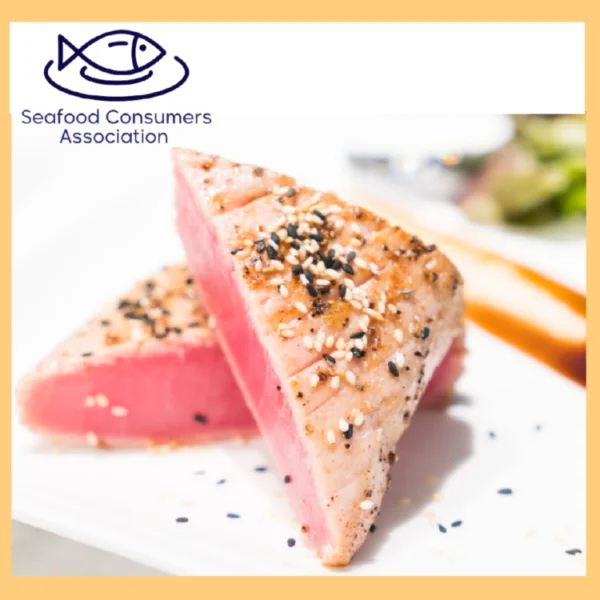14 Popular Canned Tuna Labels Analysed. Only a few brands—like John West, Coles, and Safcol—stood out for credible, transparent labelling.
Contributor: SCA CEO, Roy Palmer
Australia’s canned seafood sector is under fresh scrutiny, as the Seafood Consumers Association (SCA) throws its full support behind the Australian Competition and Consumer Commission’s (ACCC) Greenwash Guidelines, demanding tougher industry standards and honest sustainability claims.
A recent report published in April 2025 which was commissioned by the Marine Stewardship Council with the University of Tasmania (UTAS) School of Business and Economics, found greenwashing in the tuna industry was rampant – with more than half of canned tuna brands sold in Australia make sustainability claims that are either vague, unverified, or misleading. The study, which reviewed 14 top-selling brands, exposed major inconsistencies in how seafood companies communicate environmental credentials to consumers.
For SCA Chair Peter Wright, the issue is simple: misleading claims erode public trust and threaten the credibility of the entire seafood industry. “It’s time for the sector to step up and make trust the standard, not the exception,” he said.
“This is about more than marketing,” Wright said. “It’s about protecting marine ecosystems, supporting ethical fisheries, and giving Australians the information they need to make informed, responsible choices.”
The ACCC’s Greenwash Guidelines lay out clear expectations for brands, demanding that environmental claims be accurate, evidence-based, and transparent. Yet many seafood companies still rely on unverified self-certifications, broad promises, and marketing language that fails to meet the benchmark.

Why the ACCC Guidelines Matter
ACCC’s Greenwash Guidelines set out eight clear principles for making environmental claims, including:
- Making accurate and truthful statements.
- Providing evidence to back up claims
- Avoiding hidden or omitted information.
- Using clear, easy-to-understand language.
- Avoiding broad, unqualified statements.
- Ensuring visual elements and symbols do not mislead.
- Being transparent about future sustainability goals.
“The guidelines don’t just protect consumers,” Wright explained. “They safeguard the integrity of producers who are genuinely doing the right thing and investing in sustainable practices.”
According to the UTAS report, brands with independent third-party certifications were far more likely to align with the ACCC’s requirements and win consumer confidence.
But Wright warns that certification alone isn’t enough: “It must be paired with clear and honest communication. Too often, consumers are paying more for ecolabels that aren’t backed by regulatory oversight, while international certifiers overstep, and governments under-deliver.”
The SCA is now urging Food Standards Australia New Zealand (FSANZ) to strengthen seafood labelling rules, including making the Australian Fish Name Standard mandatory. “Voluntary standards don’t deliver the consistency or accountability the public expects,” Wright said.
With seafood consumption rising and climate-conscious shoppers demanding transparency, the SCA is calling for an industry-wide reset. It supports stronger enforcement powers for the ACCC and higher penalties for misleading claims.
ABOUT :











